Regenerative Agriculture is the NEXT EVOLUTION.
And it really does embody the idea that we need to regenerate these degraded systems and re-enliven them, heal them and rebuild the resiliency that we know we need going into the next decade of farming and beyond.
- Dr. Cindy Daly
Regeneration is what to do when just Sustaining is not enough. Regenerative agriculture embodies the idea that we must regenerate our degraded systems, rebuilding the resiliency that we need. When farmers transition in to a regenerative system there are a lot less input costs because the biology and diversity is providing the medicine sick soil requires–fixing nitrogen, retaining water in the soil and improving the bottom line for farmers. Regenerative agriculture can be the foundation for all the food label systems. Dr. Cindy Daly is the Executive Director of the Center for Regenerative Agriculture & Resilient Systems at California State University, Chico. Tim LaSalle is with Cindy at Eco Farm. www.csuchico.edu/regenerativeagriculture/
Rodger Wasson (RW): Did you ever feel like you needed to check with an expert about something? Well, right now I'm thinking I need some help on environmental literacy, and thank goodness I've got a professor of environmental literacy, and she's going to have to explain that. Plus, we're going to be talking about one of my favorite topics that I don't explain very well myself, and that's Regenerative Agriculture. So where better to go than to the Center for Regenerative Agriculture and Resilient Systems at California State Chico, Dr.Cindy Daly. Cindy, welcome to Farm To Table Talk.
Cindy Daly (CD): Thank you. This is a great opportunity to spread the word.
RW: Yes, we'll spread the word. But help me get back to where that word started. Every time I hear about Regenerative Agriculture, I recall a time when nobody said anything about Regenerative Agriculture. Maybe I was just absent that day, but when did you start hearing or spreading the word about that term of regeneration, of Regenerative Agriculture?
CD: Right. Well, we started using that vocabulary when it was really picked up by the farming community. There's a group of growers that I think really lifted that terminology and that word and put it to use in many ways in their outreach and in their field days and really in their trainings and support to other farmers. So we picked it up really from those kinds of activities. We've been involved in the sustainable arena and ecological farming since 2005, kind of in that era. And interacting with a variety of different growers that in those days really identified more as an ecological farming entity. Organic, some of the growers that we were working with were organic. And I think Robert Rodale is actually credited with that particular term.
CD: But that dates back to the 1940s when that was first put in print. And then I think the farming community picked it up from there. And it's really been a grassroots effort from the farming community, more than anything else. We began this initiative in Regenerative Agriculture when we were approached with a group of growers that were most interested in seeing this ecological farming movement elevate beyond the organic community and into all of production agriculture. And we began the Regenerative Ag Initiative back in 2016. That was when I was reintroduced to Tim LaSalle. And Tim had been talking about Regenerative Agriculture, even back in that 2005 timeline when he was the CEO of Rodale Institute. And at that point in time, I did a pilgrimage back to the East Coast and met Tim there at that time when he was CEO.
CD: And he did talk about Regenerative Agriculture. I really didn't necessarily begin talking about it in that way. But he had picked it up from Rodale's and really tried to align it more so with the organic community, and it really hadn’t taken flight until more recently. And I would say within the last 15 years, I just see it a lot more often and people tend to discern it as the next evolution in sustainable Ag. So sustainability was really the mantra for the longest time for ecological farming. But it became obvious that we don't necessarily want to sustain a degraded system, and we do have a lot of soil and water issues and air quality issues that we need to resolve.
CD: And so sustaining that kind of a system doesn't seem to make sense. And in many respects, sustainability is a term that was worn out. I think it may have been utilized in some scenarios to describe things that probably were not sustainable. So Regenerative Agriculture is the next evolution of that. And it really does embody the idea that we need to regenerate these degraded systems and re-enliven them, heal them and rebuild the resiliency that we know we need going into the next decade of farming and beyond.
To continue reading click the link below….
The soil is a situation that you can recover.
The soil can heal itself, if it's managed appropriately.
- Dr. Cindy Daly
You can find the Farm To Table Talk Podcast on all major podcast platforms.
Apple Podcast | Spotify | Google Podcast | TuneIN
Thanks for tuning in! Stay tune next week for another Farm To Table Talk podcast episode!
Know someone who might like this newsletter? Please share it with them! Let's build a strong and supportive community together.



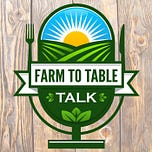



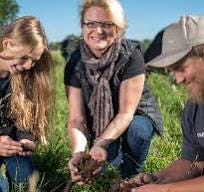





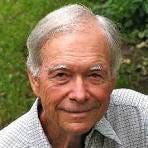
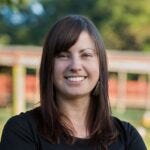

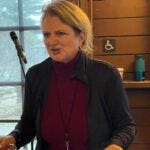
Share this post